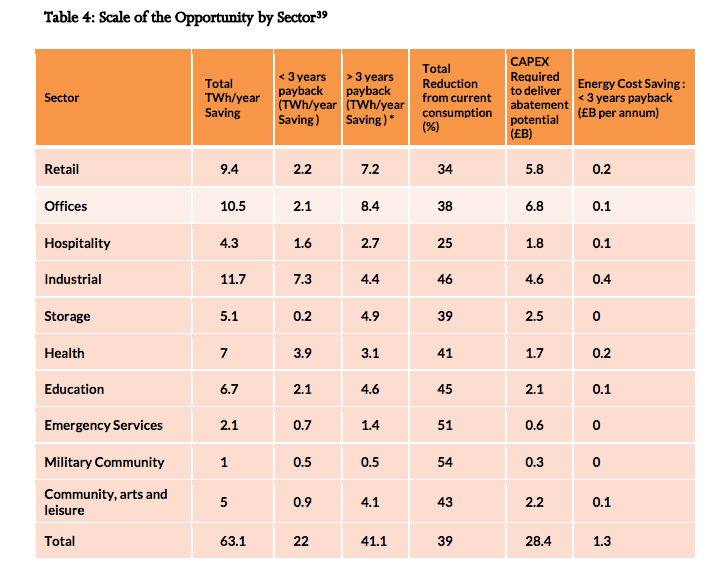 The public sector should be made to take Esos audits and the energy efficiency scheme should be given sharper teeth, according to a new report by Policy Exchange.
The public sector should be made to take Esos audits and the energy efficiency scheme should be given sharper teeth, according to a new report by Policy Exchange.
The think tank says billions could be saved by putting energy efficiency at the heart of energy policy. It calls for the government to set up an Energy Efficiency Delivery Unit to bridge the gap between viable projects and available capital, and make its existing policies more targeted and more strict.
Esos
The report suggests the public sector could lead the non-domestic market on energy efficiency. Bringing the public sector into the Energy Savings Opportunity Scheme (Esos) could shave 13TWh off the UK’s annual energy consumption, it states.
The report also called for tighter reporting: “The scope of [Esos] sanctions should be increased so that mandatory reporting on progress in implementing ESOS recommendations is also covered,” it added.
Boards should also be required to take “action on energy efficiency recommendations by either rejecting or accepting them”. Currently, there is no requirement for boards to do anything with the recommendations presented by Esos audits.
Industrial strategy
Policy Exchange believes the government is getting key parts of industrial energy policy wrong: “Contrary to the government’s decision to increase the CCL discount available to Climate Change Agreement (CCA) participants from April 2019, this report recommends that CCA discounts should become more stringent in order to drive further energy efficiency within the industrial sectors,” it states.
Accounting rules
The report urges government to ensure both public and private sector are also up to speed on new accounting rules that come into force in January 2019.
Under IFRS16, leases that used to be treated as off balance sheet must come on balance sheet, which could create a substantial challenge for organisations considering investment in energy efficiency.
Biggest savings
Challenges aside, the report analyses the potential for savings by sector (see table below). Of public bodies, the health sector has some of the largest potential and the savings would cost the least, according to Policy Exchange’s analysis of government figures. It recommends the NHS “commission an assessment of energy efficiency opportunities and lead in its implementation”.
Across all sectors, government figures suggest some 63TWh could be cut from UK annual energy consumption, equating to a total demand reduction of 39%.
Download the report here.

Related stories:
Policymakers must unlock economic benefits of storage, flexibility and efficiency
Energy Institute: Policymakers should prioritise ‘poor child’ energy efficiency
Energy Institute urges retrofits and equipment upgrades to make quickest efficiency gains
Engineers tell government to pay for energy efficiency
Government should subsidise energy efficiency over renewables and give Esos teeth
Esos and the slow death of energy management
M&S boss: There is more low hanging energy efficiency fruit than ever
Ofgem: Energy flexibility will become more valuable than energy efficiency
Renewable heat subsidy schemes ‘wasting money’ by ruling out waste heat
Eon calls for energy efficiency push
National Grid boss: future of energy is demand not supply
Click here to see if you qualify for a free subscription to the print magazine, or to renew.
Follow us at @EnergystMedia. For regular bulletins, sign up for the free newsletter.



